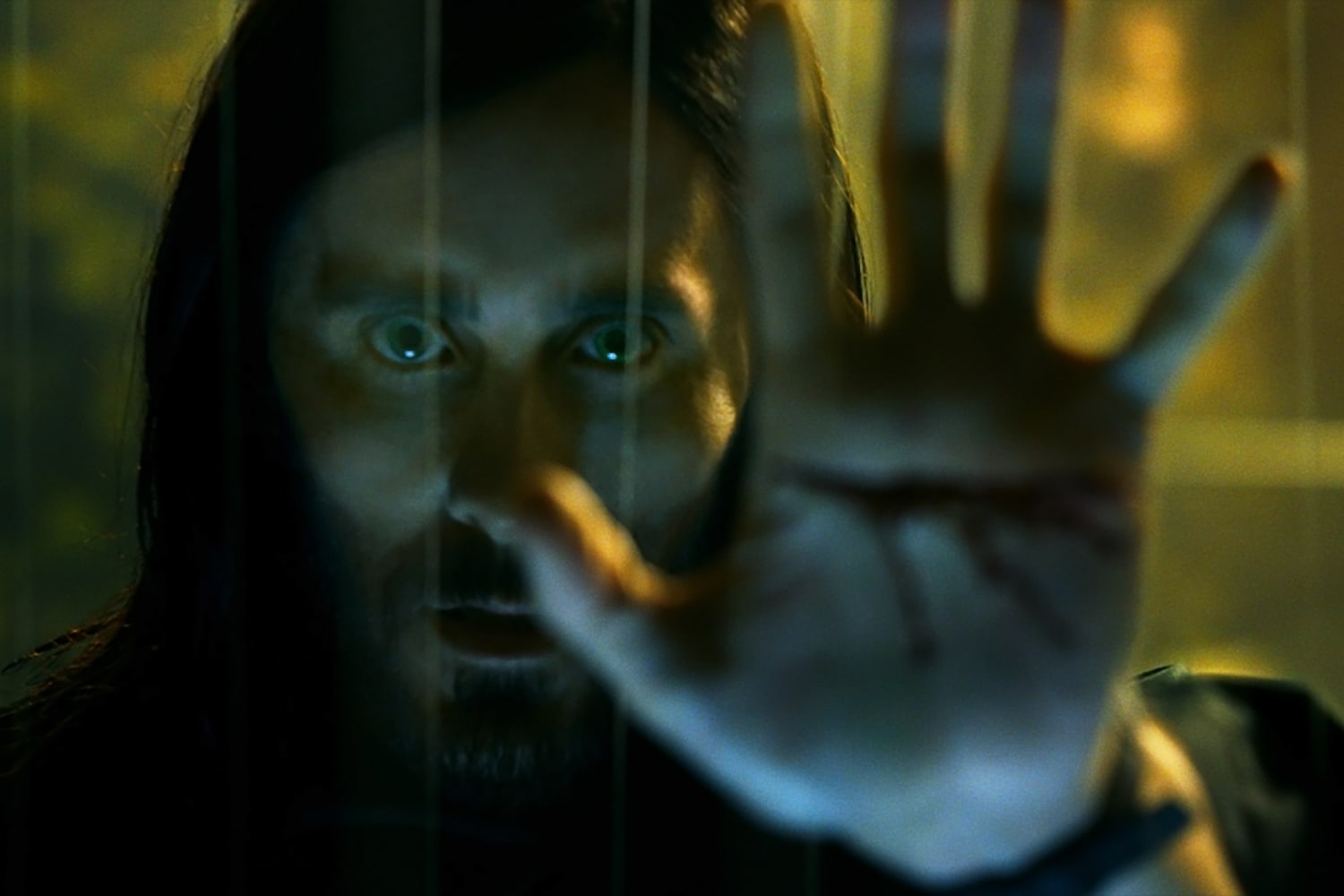

In Bram Stoker’s authentic novel, the overseas, perverse Dracula is virtually universally learn to face in for immigrants, queer individuals and Jews. When requested to decide on sides, you rooted for the virtuous British heroes, not the bloodsucking rely.
In the brand new Marvel superhero movie “Morbius,” the vampire is the good man. What he is not, nonetheless, is a champion of the marginalized. Although Dracula has lengthy represented the outsider, Morbius spends the entire movie making an attempt to be extra regular.
In the brand new Marvel superhero movie “Morbius,” the vampire is the nice man. What he is not, nonetheless, is a champion of the marginalized.
Brilliant physician Michael Morbius (Jared Leto) has a uncommon situation that leaves him weak, barely in a position to stroll and in fixed want of blood transfusions. So he dedicates his life to learning this dysfunction and defeating it. He first develops synthetic blood, which saves tens of millions of lives however doesn’t remedy his personal sickness. Then, as a result of this is a superhero film, he turns to splicing human and bat DNA. Experiments, as you’d anticipate, go awry. And earlier than you may say “origin story,” he’s a superpowered bat creature that should feed on blood.
In addition to the connection to sickness and incapacity, vampires in “Morbius” are additionally coded as queer. As a toddler, Morbius turns into shut pals with one other equally troubled boy, named Milo (Matt Smith). We see Milo early within the movie being badly bullied by a bunch of boys who goal him partially as a result of he’s weak and may’t stroll. But in addition they come after him as a result of he’s studying what is basically a love letter despatched by Morbius. The express queer bashing provides a pointed, painful edge to Milo’s repeated insistence to Morbius that “we are the few against the many.” It additionally colours Milo’s apparent jealousy of Morbius’ co-researcher and romantic curiosity, Dr. Martine Bancroft (Adria Arjona).
Milo helps fund Morbius’ efforts to discover a remedy for each of them. But whereas Morbius is horrified by the bloodlust brought on by his “cure,” Milo embraces it. “I’m not ashamed of what I am!” he declares. And he tries to persuade Morbius he shouldn’t be ashamed, both.
The separatist supervillain is a typical trope, from Magneto of the “X-Men” franchise to Killmonger in “Black Panther.” Often the script will acknowledge that the unhealthy man has some extent — mutants are oppressed in “X-Men” tales, Black individuals are oppressed in “Black Panther” (and in actual life). Magneto and Killmonger search extreme revenge, we’re speculated to suppose, however their name for justice has some advantage.
Milo isn’t accorded that a lot sympathy. The film doesn’t acknowledge its LGBTQ themes or how incapacity is compounded by the callousness of adults, in addition to the bullying of kids. Milo’s rants are simply rants; we’re not speculated to see his complaints as having any advantage.
Morbius does sometimes admit that being superstrong is enjoyable, and he has a bond with bats. There are scenes when he’s flying amid all of the CGI gunk that the story appears to be reaching — ineffectually, however nonetheless — for a lyrical celebration of bizarre queer goth transcendence. But these moments are fleeting and underdeveloped. Morbius by no means talks to Milo concerning the experiences they share as vampires or contemplates the best way marginalization has formed him. He simply needs to be regular and hetero and cool down with Martine. You don’t cheer for Morbius the vampire. You root for Morbius to defeat the vampire inside — symbolized by Milo.
This lack of sympathy is particularly irritating as a result of in some ways, it’s by no means been a greater time to be a vampire (at the very least culturally). Anne Rice, Stephenie Meyer and quite a few different writers have created romantic, interesting vampires who counsel, to at least one diploma or one other, that Bram Stoker was improper about Dracula and that marginalized individuals aren’t inherently an evil parasitic menace.
The most blatant instance on this context is that different Marvel vampire movie, “Blade,” starring Wesley Snipes. The movie performed with unfavorable stereotypes linking Black individuals with habit. But it additionally celebrated Blade’s outsider standing. He’s a hero as a result of he’s Black and since he’s a vampire, not regardless of these issues. Like Milo, he’s not ashamed.
“Morbius,” then, is a superhero story about defeating outsiders and monsters, fairly than a narrative about how these outsiders and monsters might be heroes or about how we must always possibly rethink our definitions of heroes and monsters. I assume that’s what Morbius wished. But Milo deserved higher.


